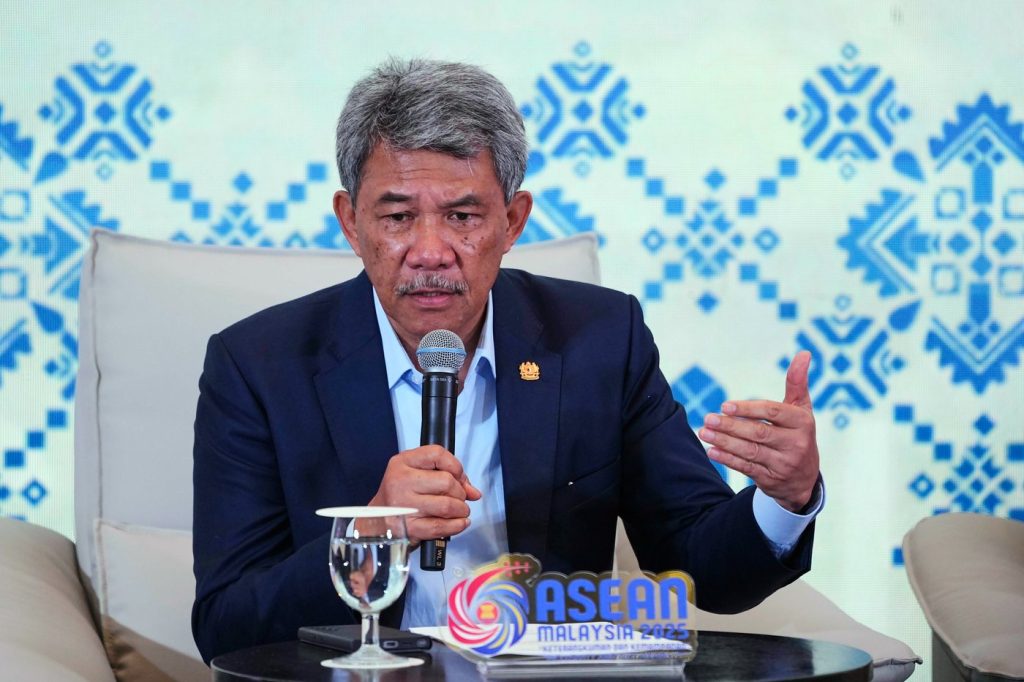KUALA LUMPUR, Malaysia (AP) - Southeast Asian nations are urged to enhance their regional economic integration, diversify their markets, and maintain unity to effectively address the repercussions of global trade disruptions attributed to significant U.S. tariff increases. Malaysian Foreign Minister Mohamad Hasan emphasized these points during the opening of a meeting for foreign ministers from the Association of Southeast Asian Nations (ASEAN) on Sunday.
During the meeting, Mohamad reiterated the bloc's plea to the conflicting parties in Myanmar to halt hostilities amidst a brutal civil war that has resulted in thousands of deaths and millions of displacements since the military takeover in 2021.
"ASEAN nations are among those most heavily affected by the U.S.-imposed tariffs. The U.S.-China trade war is dramatically disrupting production and trade patterns worldwide. A global economic slowdown is likely to occur," Mohamad stated. He emphasized the need to seize the current moment to deepen regional economic integration, thus strengthening their ability to shield the region from external shocks.
ASEAN countries, many of which significantly depend on exports to the U.S., are currently grappling with tariffs imposed by the Trump administration, which range from 10% to 49%. Six out of ten member nations have experienced tariffs as high as 49%, heavily impacting their economies. Although ASEAN initially sought to convene as a bloc with the U.S., these efforts were unsuccessful. Following U.S. President Donald Trump's announcement of a 90-day pause on tariffs last month, countries including Malaysia, Indonesia, Thailand, and Vietnam rapidly initiated trade negotiations with Washington.
The meeting of foreign ministers occurred in advance of a planned ASEAN leaders' summit on Monday in Malaysia, which currently chairs the bloc. Following this, a summit is anticipated with Chinese Premier Li Qiang and leaders from the Gulf Cooperation Council, including Bahrain, Kuwait, Oman, Qatar, Saudi Arabia, and the United Arab Emirates.
ASEAN's unity is deemed crucial as the region confronts challenges from climate change and the potential malevolent use of artificial intelligence and other unregulated technologies. Mohamad pointed out that ASEAN's centrality will face substantial tests due to mounting external pressures, particularly stemming from the rivalry between superpowers. "External pressures are rising, and the scope of challenges has never had higher stakes," he remarked. "It is therefore crucial that we reinforce the ties that bind us, so as not to unravel under external pressures. For ASEAN, unity is now more important than ever."
Remarkably, ASEAN members maintain a neutral stance, engaging bilaterally with both the U.S. and China, both of which are critical trading and investment partners. The bloc remains committed to assisting war-ravaged Myanmar, which is still dealing with the aftermath of a devastating earthquake in March that resulted in over 3,700 fatalities.
Myanmar's military leadership has been barred from participating in ASEAN meetings due to their non-compliance with the bloc's peace plan, which advocates for negotiations and the delivery of humanitarian aid. Mohamad called upon stakeholders in Myanmar to cease hostilities and to extend and expand the ceasefire to support a challenging recovery process.
The crisis in Myanmar has called into question the credibility of ASEAN, which is traditionally limited by its policy of non-interference in the domestic matters of member states. After informal consultations, Mohamad acknowledged the necessity for ASEAN to intensify its efforts in addressing the situation, as the issues in Myanmar have begun to spill over borders, contributing to a rise in refugees and cross-border crimes.
Currently, Malaysia is concentrating on de-escalating violence and improving access to humanitarian aid; however, Mohamad noted that establishing political dialogue among the conflicting parties is impeded by a significant "trust deficit."











